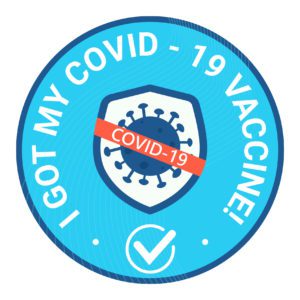The Latest News on COVID-19 Vaccines, Including Boosters and the Delta Variant
 As the contagious and rapidly-spreading delta variant of COVID-19 continues to increase case numbers in the United States and across the world, the FDA is urging Americans to get vaccinated if they haven’t already. Currently, three vaccines are authorized and recommended in the United States to prevent COVID-19. While the CDC does not recommend one vaccine over another, there are slight differences between the three.
As the contagious and rapidly-spreading delta variant of COVID-19 continues to increase case numbers in the United States and across the world, the FDA is urging Americans to get vaccinated if they haven’t already. Currently, three vaccines are authorized and recommended in the United States to prevent COVID-19. While the CDC does not recommend one vaccine over another, there are slight differences between the three.
The Pfizer-BioNTech vaccine, which is approved for people 12 years and older, consists of two shots given 21 days apart; full vaccination occurs two weeks after the second shot. The Moderna vaccine, which is approved for people 18 years and older, consists of two shots given 28 days apart; full vaccination occurs two weeks after the second shot. The Johnson & Johnson/Janssen vaccine, which is approved for people 18 years and older, consists of one shot; full vaccination occurs two weeks after the shot.
The CDC recommends getting your second shot as close to the recommended three or four-week interval as possible; however, the second shot may be given up to six weeks (42 days) after the first dose, if necessary. If you have had a severe allergic reaction (anaphylaxis) to any ingredient in the vaccine you may be scheduled to receive, do not get that vaccine. If the allergic reaction occurs after your first shot, do not get the second shot. If you have been instructed not to get one type of COVID-19 vaccine, you may still be able to get another type.
While all three COVID-19 vaccines are safe and effective in helping to prevent serious disease or death due to the coronavirus, so far only the Pfizer/BioNTech vaccine has received full FDA approval (as of Aug. 23, 2021). The other two are still under emergency use authorization, though full approval may be granted soon. Full FDA approval takes place when enough data demonstrates that the vaccine is safe and effective for most people who receive them, and when the FDA has had an opportunity to review and approve the whole vaccine manufacturing process and facilities. Most vaccines do not receive an emergency use authorization, but due to the severity and rapidity of the COVID-19 spread, the FDA gathered data in 2020 that showed the vaccines were very effective in preventing severe COVID-19 and that the risk of serious side effects was extremely low. Based on these findings, the FDA granted emergency authorization so that people could be vaccinated earlier in the approval process. (For more information about the vaccination approval process, click here.)
While it is recommended that people with moderately to severely compromised immune systems receive an additional dose of mRNA COVID-19 vaccine after the initial two doses, the head of the World Health Organization (WHO) has recently put a moratorium on booster shots for healthy people until the end of the year, to ensure that the world’s poorest populations can get their first shot. The goal is to enable every country to vaccinate at least 40% of its population before the richest countries (where vaccine supplies are more abundant) begin distributing third booster shots to their populations.
According to the CDC, currently 55.5% of the total population in America has been fully vaccinated against COVID-19. In Massachusetts, 76.8% of eligible adults have had at least one COVID-19 vaccine dose, and in Maine, 73.5% have had at least one dose. Full COVID-19 vaccination is now required for most healthcare facilities and home caregivers in Maine, so if you’re a caregiver in the Pine Tree State and haven’t yet been vaccinated, it might be a good idea to get yours soon.
While there has been some concern over whether the current vaccines provide effective protection against the highly contagious and dangerous delta variant of the disease, recent research has shown that the Pfizer vaccine was 94% effective at preventing hospitalization from the delta variant of COVID-19 after the first dose and 96% after two doses. The other vaccines have been shown to offer similar protection against all strains of COVID-19. Recent research shows that post-vaccine immunity may wear off considerably after a while, pointing to the need for an eventual booster, but in the meantime the vaccines currently available should provide sufficient protection against severe COVID-19 in all its variations seen to date.
To schedule a vaccination appointment through Massachusetts state and local health care organizations and agencies, visit https://www.mass.gov/covid-19-vaccine. To find a location and book an appointment in Massachusetts, you can also:
- Check the state’s new searchable directory at vaxfinder.mass.gov.
- Call 2-1-1.
- Call 877-211-6277 for assistance.
Those in Massachusetts can sign up for COVID-19 text alerts at the state’s website. Visit the MA COVID-19 vaccine FAQ page for all other questions, including what to expect at your appointment.
Visit Maine’s state website for information about vaccination sites, number of doses administered, latest updates, and FAQs.
The Department of Public Health is not mandating the COVID-19 vaccine; it is a voluntary program. However, it has been shown to be highly effective at preventing illness and is an important tool in the fight against the pandemic.
The vaccine is free. You should bring your insurance card and an ID with your name (if you have them) to your appointment; however, you can still get the vaccine even if you don’t have an ID or insurance. Continue taking steps to protect yourself and others from COVID-19. Even after you receive your shot, continue wearing your mask, staying at least six feet away from others outside your household, and washing your hands frequently.
